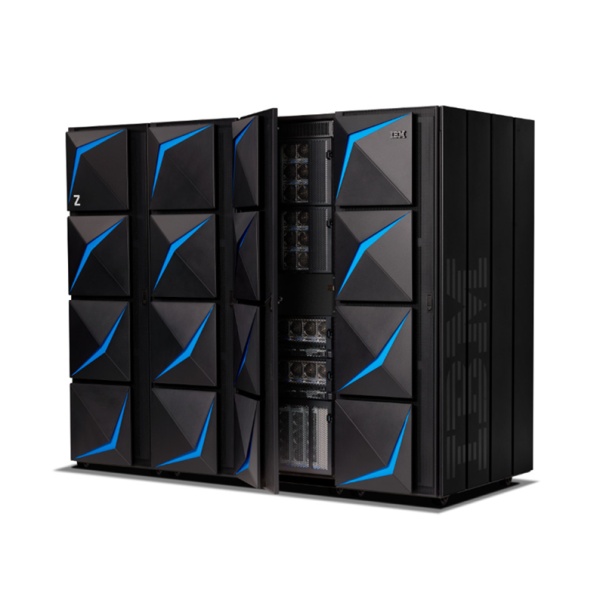Top 10 Reasons Why the Dell EMC Merger is DOA
The $67 billion Dell purchase of EMC is the largest technology deal in history -- dwarfing other major deals, but unfortunately, we think it’s too late for these two former tech titans. The writing is on the wall as they say – or in modern terms, the writing is in the cloud.
After analyzing the possible scenarios of what this deal means to our clients, we can find nothing that addresses the fundamental and underlying problem both these firms face, in what is an almost certain long term decline brought on in large part from the insurgency of cloud companies.
NET(net) believes this Dell EMC Merger deal is Dead on Arrival (DOA), and offers the following 10 reasons why:
#10. The Dell / EMC Partnership Has Already Failed Once.
Dell and EMC formed a partnership in 2001 when Dell agreed to rebrand and resell EMC storage products to the low-end of the market, but neither firm could stop itself from cannibalizing each other’s business. During this partnership, it was not uncommon for Dell and EMC to be competing for sales in the same accounts, trying to sell the very same storage products, albeit with slightly different feature sets and support options. In addition, during the term of this partnership Dell continued to make serious multi-billion dollar investments in storage technologies, most notably when Dell acquired Compellent, which put it in direct competition with EMC’s lower end storage products – this coming only after its failed attempt to acquire 3Par in a bidding war that was eventually won by HP! The so-called partners couldn’t play nice together once, so we are not sure why they will be able to play nice this time.
#9. Dell is in Big Trouble.
Dell has been trying to transition from a consumer driven PC business to an IT solutions provider since its acquisition of Perot Systems for $4 billion in 2009. In 2013, Dell was taken private for $24.4 billion in a highly leveraged buyout, which included large amounts of borrowing. Recently, Dell was the only major server maker with falling shipments. Dell’s business is in trouble, and it’s doubling down on a big consolidation play when the rest of the market seems to be moving towards smaller, more nimble companies that specialize in cloud enablement.
#8. EMC was about to be in Big Trouble.
EMC is at risk of a massive disruption of its own from more nimble providers who offer faster drive technologies and solutions that scale to inconceivable amounts of capacity for significantly lower costs. Not only do these other providers sell gear customers can house in their own data centers, but they also make their technologies accessible via the cloud, something that will cause EMC real trouble as it tries to figure out how to reverse the falling market share of its high end enterprise storage systems business.
#7. The Combined Dell / EMC Entity will be Severely Leveraged.
Not only will the companies be going through dramatic integration trauma for well into the future, Dell will concurrently be spending an estimated $2.5 Billion per annum just to service its enormous $50 billion debt. That’s less money for things like research and development at a time when both organizations are losing mind and market share to cloud companies and could benefit from a significant influx of R&D spending.
#6. The Pending Dell / EMC Culture Clash.
EMC is a high-end supplier of very sophisticated technologies for enterprise storage, security, document management, and virtualization among other critical areas. Dell is probably best known as a low cost consumer brand of PCs, with a focus on operational efficiency. Seemingly, with Dell acquiring EMC, its hope is to reach higher into the enterprise accounts to position itself as more of an end-to-end provider of not only technology, but also the services that come along with it. While we’ll have to wait and see how much business value this drives for the newly combined company, what we don’t have to wait for, is the knowledge that it will drive very little value for their customers as they try to ‘figure it out’.
#5. The Fallout with Cisco.
Dell and Cisco are rivals, competing feverishly for share in the industry standard server (ISS) and the networking markets (earlier this year in June, Dell became the #3 player in networking market share). Cisco and EMC have been extremely strong partners for many years, and Cisco is part of EMC’s VCE v-block converged systems and VSPEX architecture. This will likely change over time to Dell server and networking equipment in customer configurations. This will put significant pressure on Cisco to also look for other storage provider partners. This could potentially favor what is already a very good partnership with perhaps EMC’s biggest rival, NetApp. This would significantly reduce the amount of value that EMC gets from its strong partnership with Cisco, and could even prompt Cisco to make more serious storage investments of its own.
#4. Client infrastructure Decisions are moving to the cloud.
Clients that consume cloud computing Infrastructure-as-a-Service (IaaS) solutions don’t need Dell servers, or EMC storage. Clients have turned the corner when it comes to thinking about cloud computing for processing power and storage capacity. That spells curtains for Dell and EMC (and also for tech titans such as HP, IBM, and Cisco, among others).
#3. Application Development is moving to the cloud.
Clients are investing in Platform-as-a-Service (PaaS) solutions instead of building their own development functions. The significant cost reduction compared to building you own environment, the ability to quickly set up and deploy destructive testing environments, complementary services offered by many of the providers, and more flexible commercial models such as subscriptions and pay per use options - have all caused clients to make rapid adoption of PaaS. Meaning? Less need for Dell and EMC.
#2. Software Application Purchasing is moving to the cloud.
Clients are investing in Software-as-a-Service (SaaS) solutions. Enterprise Software Applications and Databases (and client data) are moving to the cloud. It started with players like Salesforce.com, where an entire suite of business applications moves to the cloud. When you move things to the cloud you don’t need to buy Dell servers or EMC storage to run it in your own organization.
#1. Internal IT is increasingly built on Web-scale technologies.
Technology designs for web-scale companies like Facebook and others are increasingly Open Source. Facebook has recently released its hardware and software designs for anyone in the world to see. With this information, clients are more inclined to duplicate the designs in their own organizations. In these modern designs, you don’t see traditional names like HP, IBM, EMC, Dell, Cisco, and Oracle - you see names that you have probably never heard of before. These higher value, lower cost, and highly scalable technologies are coveted by clients and are therefore another example why we think the Dell and EMC deal is DOA.
We believe these are ten (10) good reasons why this deal is DOA, but we are interested to hear your feedback as well. Please sound off below and let us know your thoughts, questions, comments, concerns, inquiries or other feedback.
Call to Action
Because of rapidly changing market conditions, including the advance of disruptive technologies, there are major savings and innovation opportunities available for all Dell and EMC customers in Q4-2015.
If you are considering a new networking, server, or storage purchase, if you are evaluating an upgrade to existing systems, or if you are evaluating your options with your maintenance renewals, we want to talk to you because we believe Q4 2015 presents some unique opportunities to capture significant value in infrastructure spending.
To get immediate help with EMC, complete the form below:
NET(net)’s Website/Blogs/Articles and other content is subject to NET(net)’s legal terms offered for general information purposes only, and while NET(net) may offer views and opinions regarding the subject matter, such views and opinions are not intended to malign or disparage any other company or other individual or group.


















